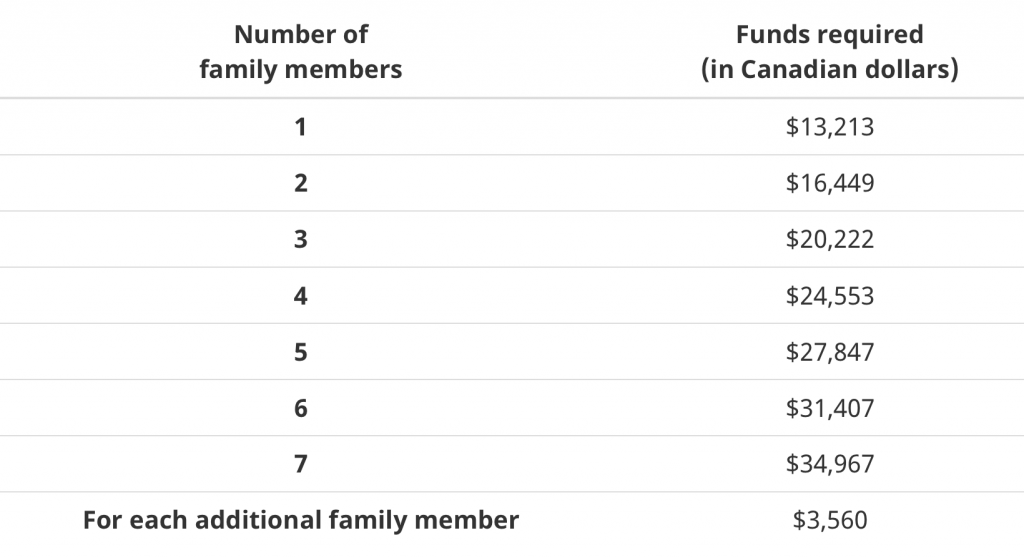There’s been huge growth in the Canadian tech sector in recent years, and with it has come much more interest to learn about the Canada startup visa requirements. In this blog post, we’ll break down the requirements, eligibility factors to be aware of and also the statistics from the program in 2019.
Canada Startup Visa Requirements
In terms of being eligible for the Canada startup visa program, here are the major requirements:
1) You need a letter of support
The first step to getting a startup visa is getting a letter of support from a designated Canadian incubator, venture capital fund or angel investor group. This is to make sure that your company is legitimate and will have the support, financially or otherwise, to succeed in Canada.
You can find the Canada startup visa incubator list, which includes venture capital funds and angel investors, here.
It’s also very important to keep in mind that at the time you receive your letter of support:
- each one of the founders who wants to come to Canada must hold at least 10% of the voting rights of the company
- all founders and the designated organization must hold a combined 50% or more of the voting rights of the company
- you can include up to 5 founders in your startup visa application
2) You need to complete a language exam
Similar to many other permanent resident programs in Canada, you need to obtain a minimum score on a language exam for the startup visa program. In this case, each founder that is applying needs at least a CLB 5 on 1 of the 4 accepted language exams.
To learn more about which exams are accepted and book an exam, head to the government website here. You can also get some helpful tips for the IELTS exam on our blog post here.
3) You need enough funds to support yourself and your family
Immigration Canada needs to be convinced you and the other founders can afford to travel to Canada and support yourself and any family members you may be bringing (you can include your spouse and dependent children). Below you’ll find a breakdown of the funds required based on the number of family members included in your application, and you can also check out our guide to the Express Entry proof of funds here to learn about what they accept as proof:

How to apply for the Canada startup visa program?
If you meet the Canada startup visa requirements above, next you’ll want to do 3 things:
1) Download the startup visa document checklist and start collecting the necessary documents
2) Follow the in-depth instruction guide posted by Immigration Canada to ensure you prepare the application and documents properly – found here
3) Because this is a paper application, you’ll need to pay your fees online and submit the receipt with your application. Learn more about how to pay and include your fees here
Note: each founder must submit their own application separately, but each application needs to be submitted before they will be processed.
What is the average Canada startup visa processing time?
Processing times can vary, but Immigration Canada says the average processing time for the startup visa program takes between 12 to 16 months. While this is quite a long time, you can also apply for a work permit in the meantime once you receive your letter of support, which allows you to move to Canada and start working on your company before your PR application is approved.
It is also important to know that by the time your PR application is approved, you must then provide ongoing management of the business within Canada with a good part of the operations taking place in the country, and you must also be incorporated in Canada as well. All of this is to say that you want to be very careful that you meet all of the Canada startup visa requirements during the process and as it completes, to ensure a smooth transition into Canada.
How many startup visas were approved in Canada in 2019?
When researching Canada startup visa 2019 statistics, we were surprised to see that only 280 applications were submitted that year. While this doesn’t stack up well compared to other Canadian immigration applications, it is also a good sign for those who are serious about applying. If you have a legitimate company with genuine intentions to settle in Canada, and are able to secure a letter of support, it can be a very promising pathway to Canada with fewer applicants to compete against.
If you’d like to learn more about the Canada startup visa requirements, including our full guide for PR and the work permit, make sure to sign up to the free Visto portal as well.
